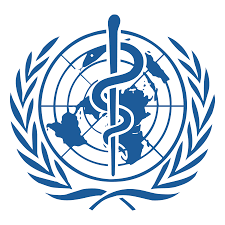
WHO Honors South-East Asian Cities for Advancing Urban Health and Well-being
The World Health Organization (WHO) has recognized ten cities across six countries in the South-East Asia Region for their remarkable efforts in improving urban health and well-being. These cities have been acknowledged for their commitment to inclusive planning, local leadership, innovation, and multisectoral approaches that address key determinants of health.
WHO Regional Director for South-East Asia, Saima Wazed, conferred the first batch of Accreditation Awards under the ‘WHO Regional Healthy Cities Network for South-East Asia’ initiative during a virtual ceremony hosted by the Regional Office. Speaking at the event, she praised the awardees for their dedication and perseverance in creating healthier urban environments. “This journey has not been easy. It has taken years of assessing local needs, crafting city health profiles, and designing plans that deliver real, measurable change for the people you serve. I am inspired by your perseverance,” she said
The awarded cities have made substantial progress in addressing environmental, social, economic, commercial, and governance-related factors that influence public health. Each city has tailored its approach to meet local needs. In the Maldives, Addu has focused on youth empowerment, urban farming, and employment training. Sri Lanka’s Badulla Municipal Council has advanced dengue control, implemented school nutrition programs, and improved waste management. In Thailand, Bangkok has expanded green public spaces and launched community-centered initiatives, while Bansuan Municipality has strengthened elderly care and community resilience through home visits. Meanwhile, Nepal’s Dhulikhel Municipality has enhanced community engagement through inclusive health committees and local reviews of Sustainable Development Goal (SDG) progress.
Additional cities have also been recognized for their innovative approaches. Thailand’s Klong Chaun Municipality has developed age-friendly services and health security funds for vulnerable groups, while Indonesia’s Makassar city has implemented integrated health services, waste management innovations, and participatory governance models. In India, Pune Municipal Corporation has leveraged public-private partnerships and corporate social responsibility resources to expand services for vulnerable populations, including increasing access to diagnostics and improving rehabilitation for children with disabilities. Similarly, Thailand’s Sadao Municipality has promoted active aging, citizen participation, and inclusive health access, while Indonesia’s Wajo Regency has introduced integrated health services, community-led waste management initiatives, and participatory governance strategies.
Emphasizing the impact of these efforts, Wazed stated, “These cities have shown how to improve health and well-being by creating active spaces for physical activities, safe pedestrian footpaths, clean and green environments, reducing carbon emissions, outreach programs for vulnerable populations, social protection funds, and much more.”
With over 55% of the global population now living in urban areas—a figure expected to rise to 68% by 2050—urban health is an increasingly critical issue. The South-East Asia Region, which is home to a quarter of the world’s population and includes ten megacities, is witnessing rapid urban expansion, placing immense pressure on health systems, infrastructure, and governance. Recognizing this challenge, WHO launched the South-East Asia Regional Healthy Cities Network in 2022, in collaboration with the Swiss Development Cooperation and Chulalongkorn University. The initiative provides local governments with technical support, peer learning opportunities, and a platform for exchanging innovations. Since its inception, 23 cities have joined the network, with awards being conferred every two years following a rigorous evaluation process.
As she concluded the ceremony, Wazed underscored the significance of the recognition, stating, “These awards celebrate not perfection, but progress—acknowledging the steps taken over two years and the plans set for the future. With WHO’s Healthy Cities framework as a guide, we hope the best is still to come.”